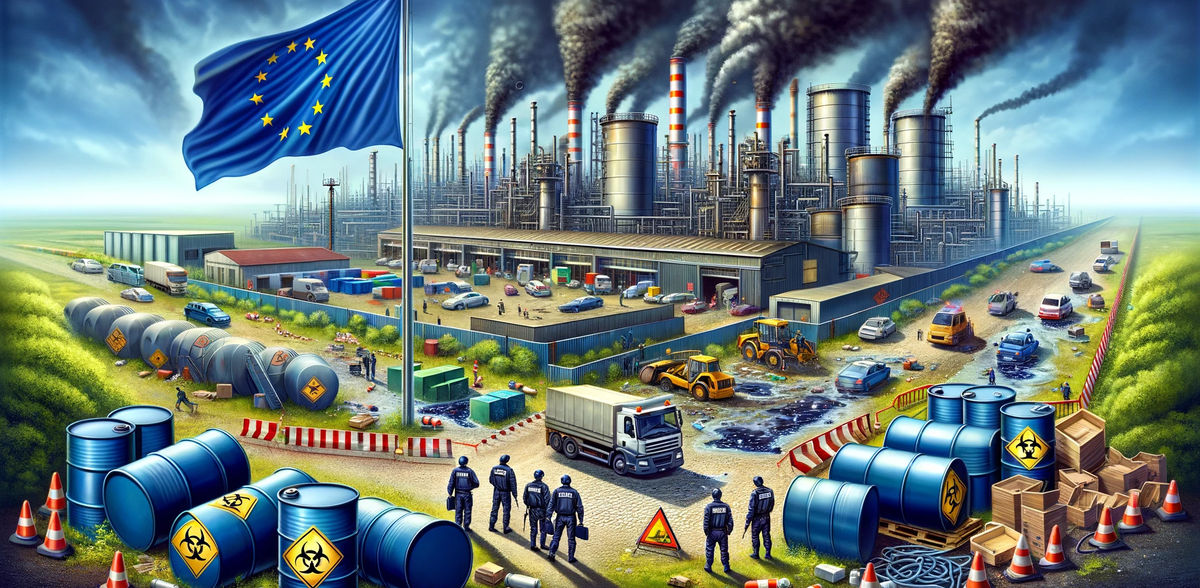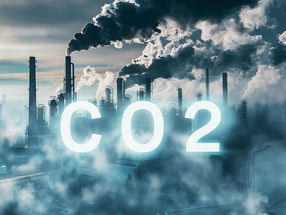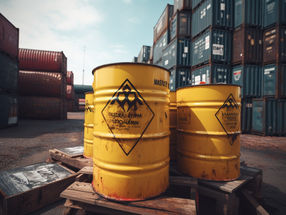EU wants to take tougher action against environmental crime
The commonly defined offenses will reportedly include serious violations of chemical regulations
(dpa) Serious crimes against the environment are to be punishable with heavy prison sentences and fines throughout the EU in future. Representatives of the governments of the member states and the European Parliament agreed on new rules in Brussels on Thursday to improve the prosecution of environmental crimes. They provide for a more precise definition of environmental crime and tougher penalties. The EU Commission presented a proposal for the new rules at the end of 2021 because the existing guidelines were not very effective.
The jointly defined offenses will reportedly include the trade in wood of illegal origin and serious violations of the regulations on chemicals. The illegal recycling of environmentally harmful ship parts, for example, is also included.
Crimes committed intentionally that cause the death of a person will in future be punishable in all member states by at least ten years' imprisonment. For legal entities such as public limited companies, maximum fines of at least five percent of total worldwide turnover or, alternatively, 40 million euros are envisaged for the most serious offenses. For other offenses, penalties of at least three percent of total worldwide turnover or, alternatively, 24 million euros are to be threatened.
It is also envisaged that additional measures can be taken. These include, for example, obliging the offender to restore the environment to its previous state or to provide compensation. Furthermore, exclusion from access to public funding or the
withdrawal of permits and approvals should also be possible.
Environmental crime is one of the most profitable activities of organized crime worldwide and has a considerable impact on the environment and human health, explained the Council of Member States on the planned new directive. At the same time, however, it has so far been difficult to detect, prosecute and punish. The agreement must now be confirmed by the Council of Member States and the plenary of the European Parliament. However, this is considered a formality.
Note: This article has been translated using a computer system without human intervention. LUMITOS offers these automatic translations to present a wider range of current news. Since this article has been translated with automatic translation, it is possible that it contains errors in vocabulary, syntax or grammar. The original article in German can be found here.
Other news from the department politics & laws

Get the chemical industry in your inbox
By submitting this form you agree that LUMITOS AG will send you the newsletter(s) selected above by email. Your data will not be passed on to third parties. Your data will be stored and processed in accordance with our data protection regulations. LUMITOS may contact you by email for the purpose of advertising or market and opinion surveys. You can revoke your consent at any time without giving reasons to LUMITOS AG, Ernst-Augustin-Str. 2, 12489 Berlin, Germany or by e-mail at revoke@lumitos.com with effect for the future. In addition, each email contains a link to unsubscribe from the corresponding newsletter.





























































